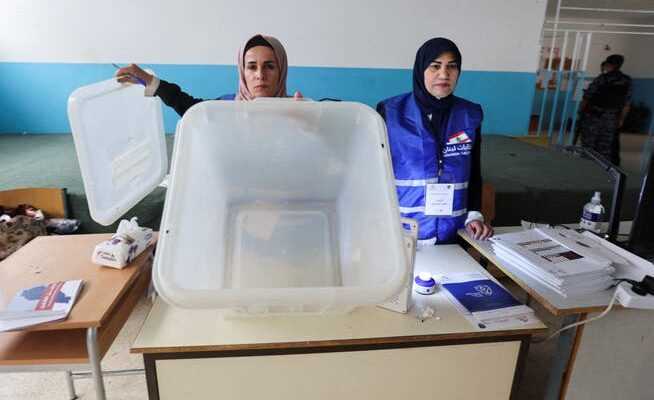The country on the Mediterranean has been suffering from the worst economic and financial crisis in its history for more than two years. Nevertheless, the chances of a serious change are considered slim. This has to do with the electoral system and the fragile balance of denominations in government.
A worker at the elections office in Houla, southern Lebanon, shows the empty boxes in which ballot papers are collected before voting begins on May 15.
(dpa)
The first parliamentary elections after the explosion in the port of the capital Beirut began in Lebanon on Sunday morning. In view of the severe economic and financial crisis, many younger voters in particular are hoping for a victory for candidates critical of the government. Almost four million people are called upon to determine the 128 members of the House of Representatives. The first preliminary results could be available on Sunday evening.
The country on the Mediterranean has been suffering from the worst economic and financial crisis in its history for more than two years. According to the UN, around three quarters of the population now lives below the poverty line. In everyday life, people struggle with insufficient supplies. Many households only have electricity for a few hours a day. Recently, concerns grew that the war in Ukraine could lead to a severe bread crisis.
The chances of a major change are considered slim because of the electoral system. Many observers expect that the Shiite Hizbullah, which is allied with Iran, will be able to consolidate its strong position. It is unclear how the resignation of the hitherto most important Sunni politician, Saad al-Hariri, will affect him. The former Prime Minister surprisingly announced in January that he would not run for office.
The number of opposition candidates is larger than in previous elections. Many emerge from the mass demonstrations against the political leadership that erupted in 2019.
Lebanon’s political system is characterized by a fragile balance of denominations. The head of state is always a Christian, the head of government a Sunni and the speaker of the parliament a Shiite. Critics complain that the most important decisions are made by the leading politicians outside of parliament.
More than 190 people died in the explosion in the port of Beirut on August 4, 2020. Around 6000 people were injured.
